Alphabet familiarity Alphabet Worksheets for Ages 4-5
9 filtered results
-
From - To
Introduce your child to the world of letters with our "Alphabet Familiarity Worksheets for Ages 4-5." Designed to make learning the ABCs engaging and fun, these printable worksheets help young learners recognize, trace, and write each letter of the alphabet. Perfect for preschoolers and kindergarteners, our activities foster essential early literacy skills like letter identification, phonetics, and handwriting practice. With colorful designs and interactive tasks, children will be excited to explore and master the alphabet. Nurture a love for reading and writing from an early age with our expertly crafted educational resources. Download now to start the alphabet adventure!
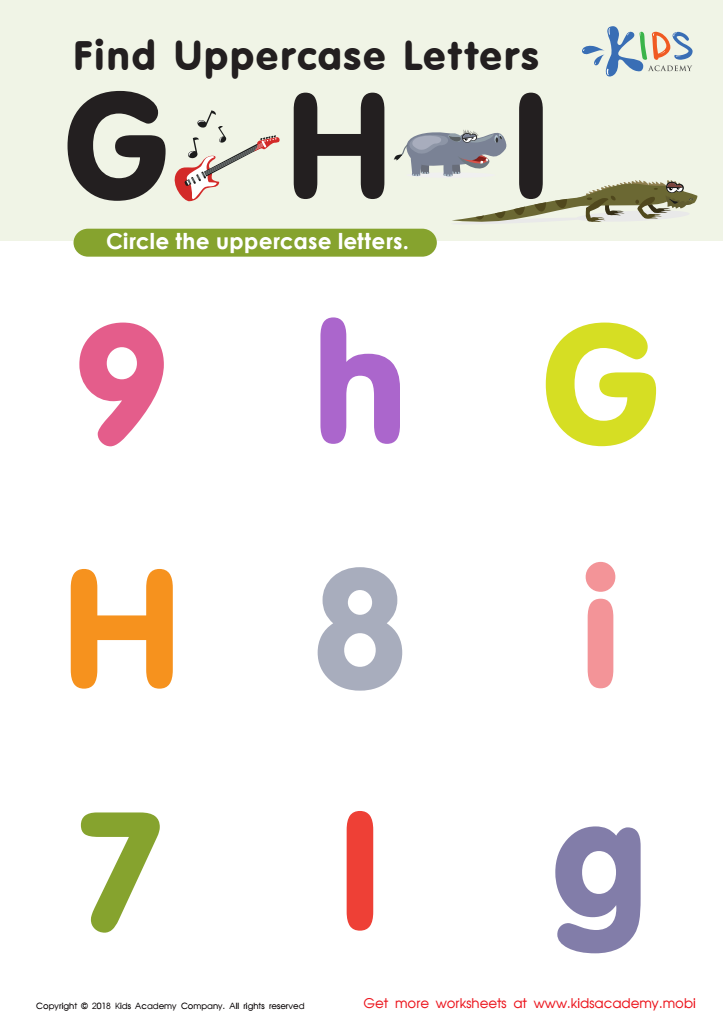

Find Uppercase Letters G, H, and I Worksheet
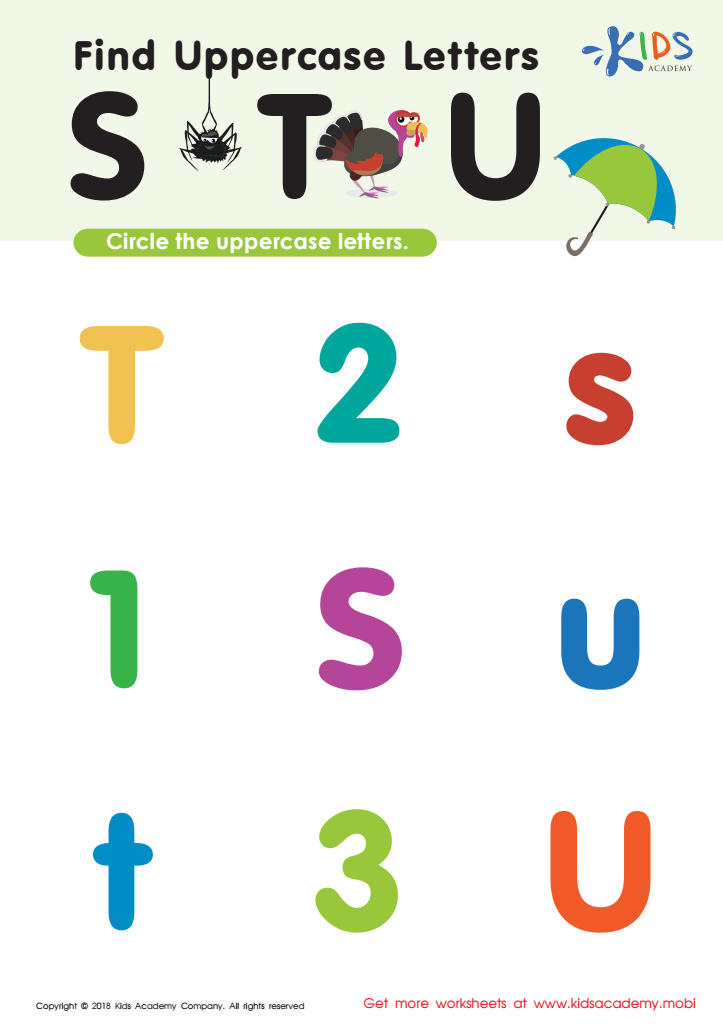

Find Uppercase Letters Worksheet
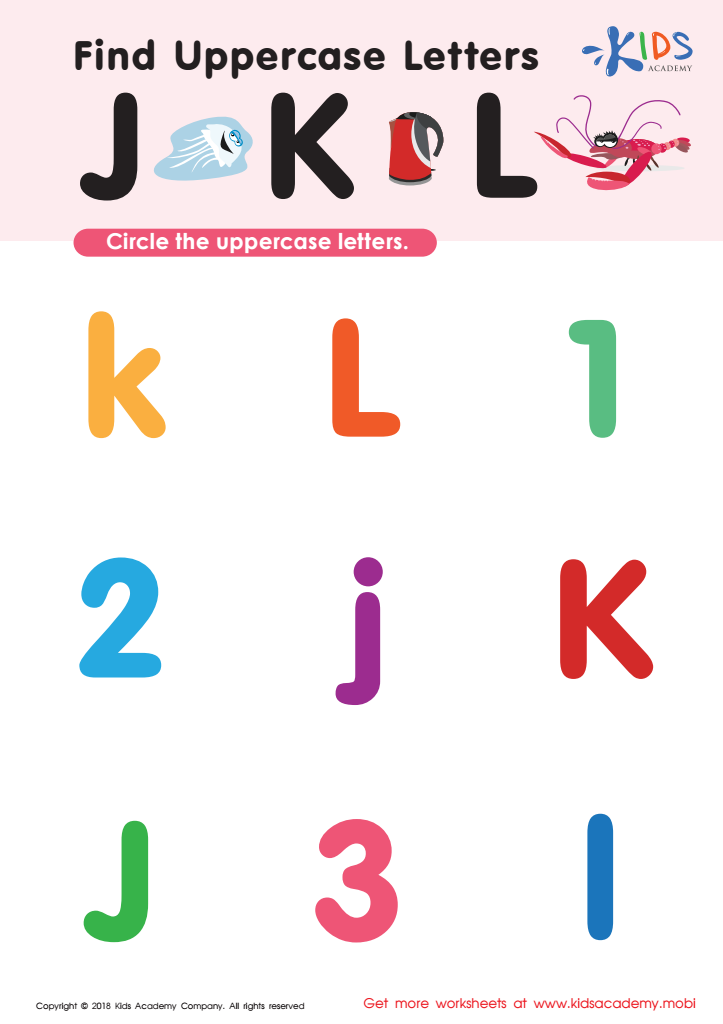

Find Uppercase Letters J, K, and L Worksheet
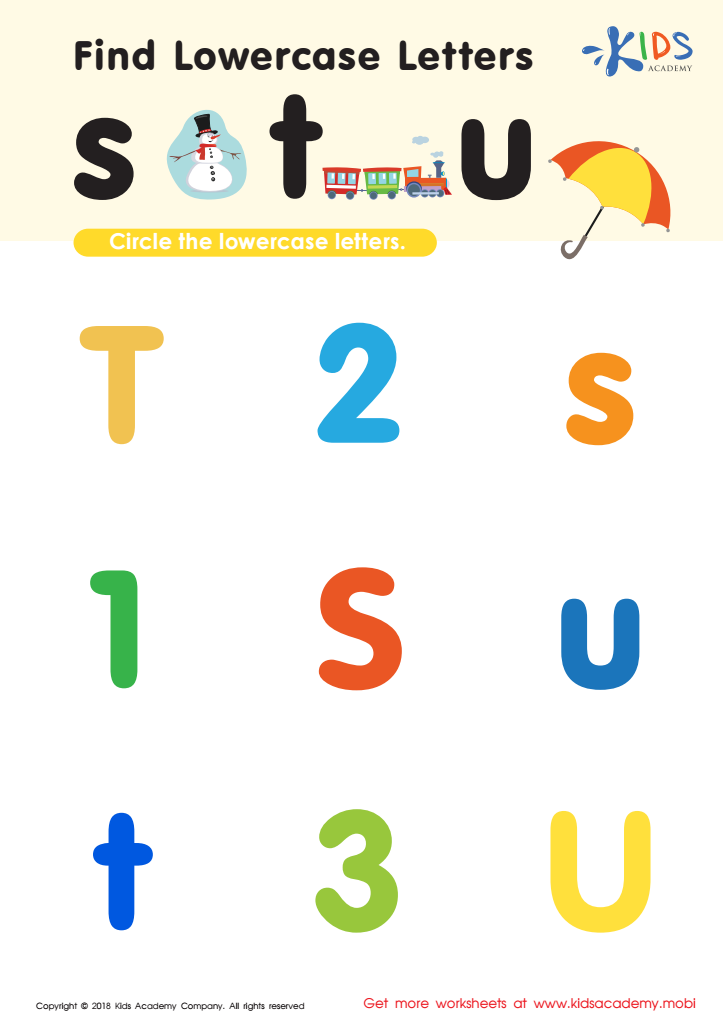

Find lowercase Letters s t u Worksheet
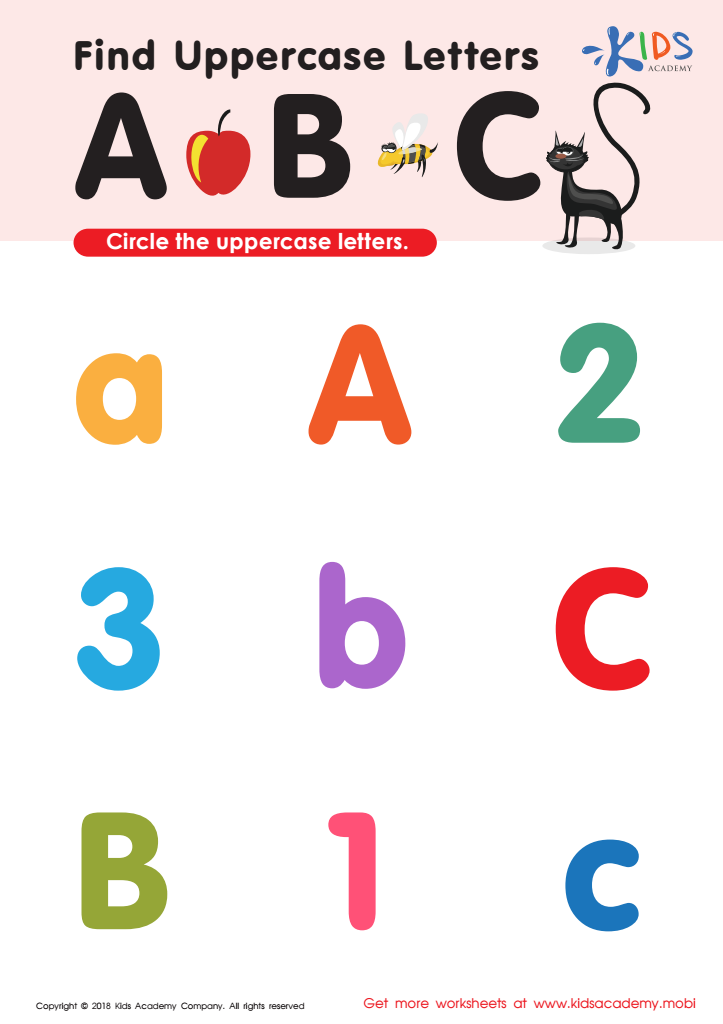

Find Uppercase Letters A, B, and C Worksheet
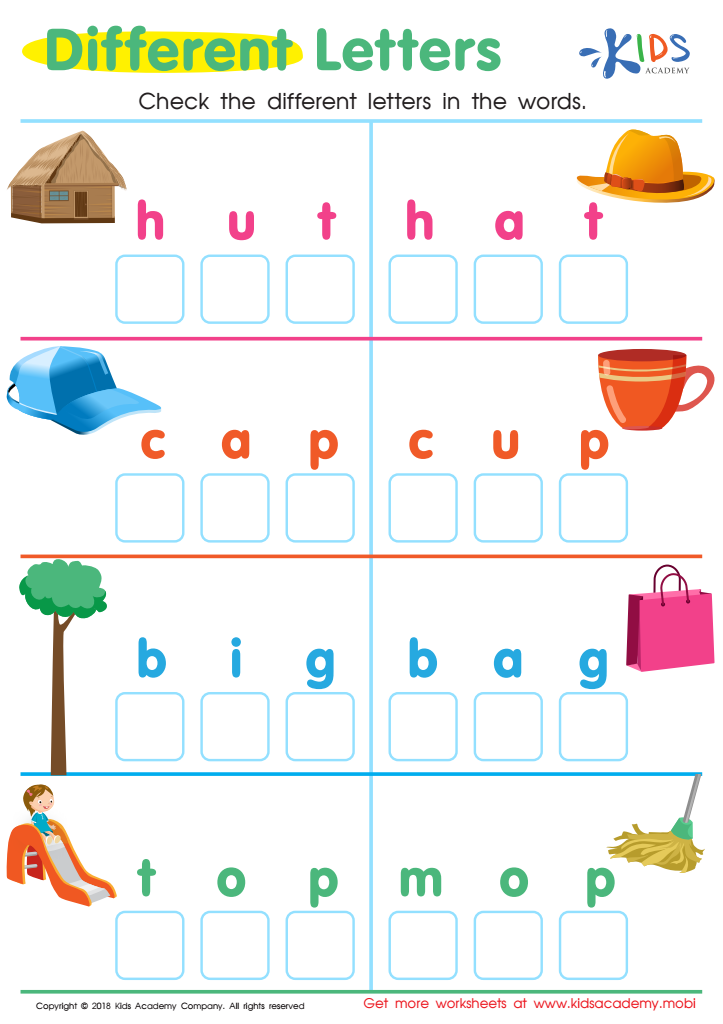

Different Letters Reading Worksheet
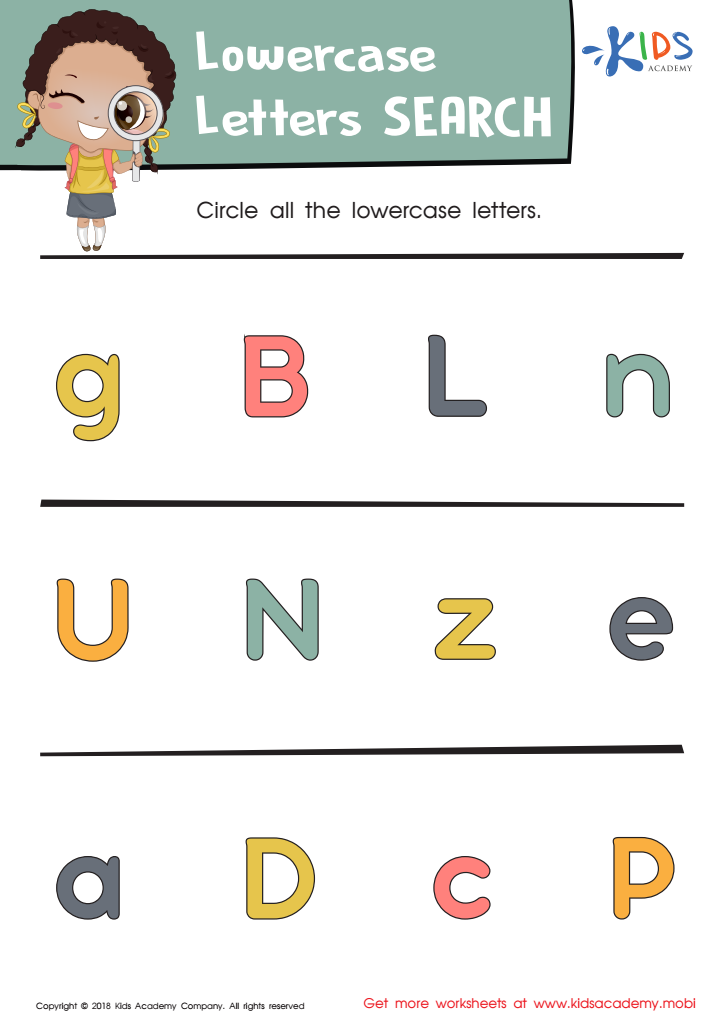

Lowercase Letters Search: Assessment Worksheet
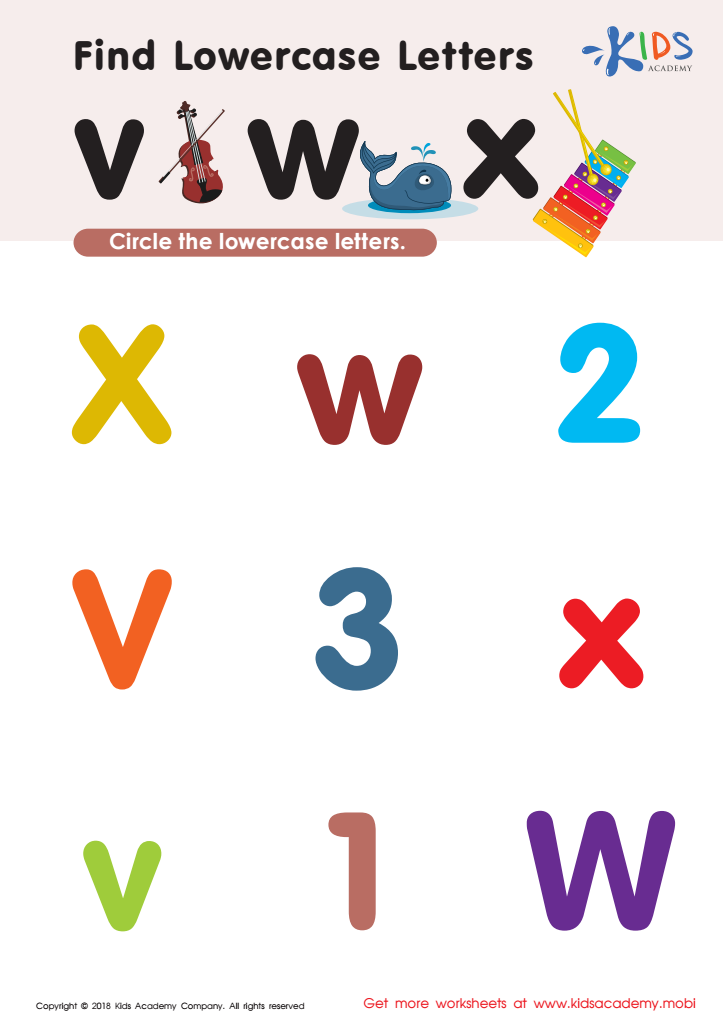

Find Lowercase Letters v w x Worksheet


Phonological Awareness: Assessment 1 Worksheet
Alphabet familiarity is crucial for children aged 4-5 as it lays the foundational skills for reading and writing, both essential for lifelong learning and communication. At this developmental stage, young brains are highly receptive to new information and learning patterns. Introducing the alphabet early helps solidify memory, recognition, and understanding of letters, which are the building blocks of literacy.
Parents and teachers play a vital role in fostering this early literacy. When children become familiar with the alphabet, they start recognizing letter shapes and sounds, making it easier to decode and spell words later. This familiarity enhances their phonemic awareness, crucial for effective reading comprehension and language development.
Moreover, hands-on activities like singing the ABC song, playing with alphabet puzzles, or tracing letters can make learning engaging and enjoyable, cultivating a positive attitude towards education. Early alphabet knowledge also supports cognitive development, improving concentration, attention to detail, and fine motor skills through writing practices.
Involvement in children’s early learning journey ensures they receive the support and encouragement needed to build a solid educational foundation. Parents and teachers who prioritize alphabet familiarity for 4-5-year-olds not only boost confidence and academic readiness but also set the stage for future educational success.

 Assign to My Students
Assign to My Students




















